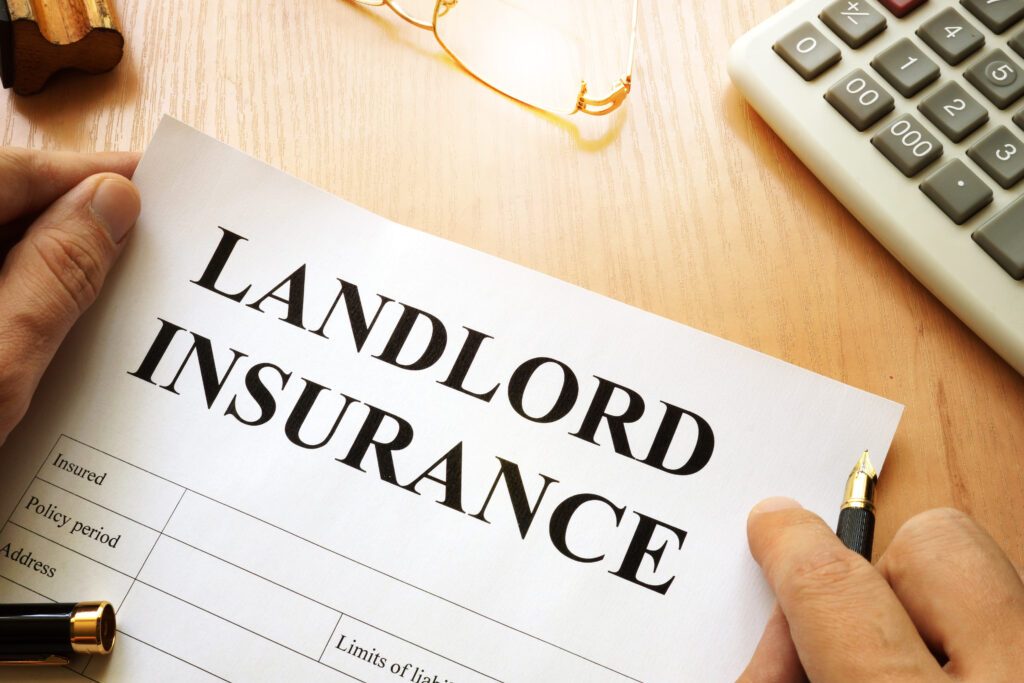As a landlord, you know that many risks are associated with owning and renting out property. However, the last thing you need to worry about is whether or not your assets are protected in the event of an accident or liability claim. That's where landlord insurance comes in. Landlord insurance protects you from any potential losses that may occur due to your rental property business. This article will explain what landlord insurance is and why it is critical for your business.

Landlord insurance is a type of insurance that specifically covers landlords and their rental properties. This type of insurance protects you from any financial losses that may occur as a result of someone being injured on your property, damage to your property, or any other type of liability claim. It is important to note that landlord insurance does not cover the tenant's personal belongings - only the landlord's property and assets.
There are two main types of landlord insurance: property damage and liability:
Property damage insurance covers any physical damage to your rental property caused by tenants or other factors beyond your control.
A scenario where property damage coverage would apply: A tenant accidentally starts a fire in their unit that spreads to damage other units in your building. In this case, your property damage insurance would cover the cost of repairs for the units damaged by the fire.
Liability insurance covers any legal claims or damages filed against you due to someone being injured on your property.
A scenario where liability coverage would apply: A tenant slips and falls in your building's parking lot, sustaining injuries. If they file a lawsuit against you, your liability insurance will cover the cost of their medical bills and any legal fees associated with the case.
There are many reasons why landlord insurance is important. However, here are a few of the most pressing reasons why:
If you are sued as a result of an accident that occurred on your property, your personal assets (such as your home, savings, and investments) could be at risk if you don't have landlord insurance.
Accidents happen, and sometimes tenants can be responsible for damage to your property. Unfortunately, if you don't have landlord insurance, you will have to bear the cost of repairs yourself.
Knowing that you are protected against any potential risks associated with owning a rental property can give you peace of mind and allow you to focus on running your business.
In some states, landlord insurance is required by law. However, even if it's not required in your state, your mortgage lender may still require you to have it. Regardless, it's always a good idea to have protection in place.
The cost of landlord insurance varies depending on many factors, including the value of your property, the location of your property, the type of coverage you need, and the deductible you choose. However, the average cost of landlord insurance is between $500 and $1,000 per year.
The claims process can vary by carrier; however, the process typically goes like this:
This is known as First Notice of Loss, or FNOL. When you contact your insurance company to tell them that an accident or incident has occurred on your property.
The claims adjuster will contact you to get more information about the incident and begin their investigation.
Once the investigation is complete, the insurance company will determine if the claim is covered under your policy.
If the claim is determined to be valid, the insurance company will pay out the claim according to the terms of your policy.
Once you have received the insurance payout, you can use the money to repair or replace any damaged property.
When shopping for landlord insurance, it's important to ensure you get the right coverage for your needs. Here are a few things to look for in a policy:
This is one of the most important types of coverage for landlords, as it covers the cost of repairs if your property is damaged.
As we mentioned earlier, liability coverage protects you if someone is injured on your property and files a lawsuit against you.
If your property is damaged to the point where tenants have to move out, this coverage will reimburse you for any lost rent.
This type of coverage will pay for the medical bills of anyone injured on your property.
These are just a few things to look for in a landlord insurance policy. Be sure to talk to your insurance agent to understand better what coverages are right for you.
Q. Do I need landlord insurance if I own a condo?
A. Yes, you should still get landlord insurance even if you own a condo. However, your condo association's policy will likely only cover the building itself, not your personal belongings or any damage you may cause to other units in the building.
Q. I have a home insurance policy. Isn't that enough?
A. No, a home insurance policy is not enough. Home insurance policies typically exclude coverage for damages caused by tenants or any income lost if your property is uninhabitable.
Q. Do I need landlord insurance if I only rent out one room in my house?
A. Yes, you should still get landlord insurance even if you only rent out one room in your house. However, a standard home insurance policy will not cover any damages caused by tenants or any income lost if your property is uninhabitable.
Q. How often should I review my landlord insurance policy?
A. You should review your landlord insurance policy at least once a year to ensure it still meets your needs. You may also want to review it after any major changes, such as adding or removing a tenant, making repairs or renovations, or increasing the rent.